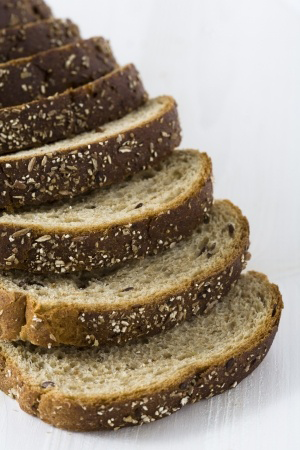 We’ve got some good news for you seniors doing your best to keep your brain at peak performance in your golden years: making a few simple dietary changes can help super charge the physical and mental exercise in your brain fitness routine.
We’ve got some good news for you seniors doing your best to keep your brain at peak performance in your golden years: making a few simple dietary changes can help super charge the physical and mental exercise in your brain fitness routine.
1. Replace soda and other sugary beverages with water or unsweetened tea
Dr. Michael Roizen, Chief Wellness Officer at the Cleveland Clinic, calls the high fructose corn syrup in sugary soda and other sweetened beverages a “liquid candy” serial killer.
A single 18-ounce drink boasts an average of 15 teaspoons of sweetener that translates to a whopping 200 (or more) calories. To add insult to injury, these sugary drinks can also interfere with the mechanisms in your brain that tell your body you’re full and should stop eating.
“Getting the obvious, and not so obvious, sweeteners out of your diet will save you hundreds of calories a day—and remove a substance that could be flipping metabolic switches without your permission,” says Roizen.
2. Opt for whole grain products over those that are refined and enriched.
Whether the grain products you’re eating have been bleached, enriched, or refined, they’re essentially empty calories that rocket straight into your bloodstream, spiking your blood sugar, raising your blood pressure, and putting stress on your arteries. As you get older, this kind of regular stress begins to damage your blood vessels—and can, ultimately, impede blood flow to the brain.
3. Substitute ground chicken or turkey for the beef in your burger or meat sauce.
When it comes to brain fitness—or any kind of fitness, really—leaner and lighter is better. If you want your brain to function optimally, you can't be loading up on fatty meats that pump your bloodstream with saturated fat and raise your cholesterol.
While you may enjoy that juicy burger in the moment, eating those four ounces of red meat (about the same amount as an average burger) can raise your risk for heart disease—a condition that is often linked to a decline in brain health—by nearly 30 percent.
4. Replace one or two meals a week with vegetarian alternatives.
Just like choosing turkey or chicken instead of ground beef can have a positive impact, choosing no meat at all serves to lighten the load even more when it comes to how your body processes food. The more effort your gut needs to put into converting your meals into energy, the more blood it's going to pull in from other areas of your body, including your brain. That can result in muddy thinking and a sluggish ability to deal with the information presented to you.
If you replace even just a meal or two each week with a vegetarian dish, you'll likely find that you feel lighter and can think more clearly.
5. Choose low-fat yogurt and other dairy products rather than full fat versions.
The heavy fats in yogurts and other types of dairy products can also contribute to a sluggish brain, due to the body working hard to process all the fat that has been taken in. While dairy products are definitely good for you, choosing low-fat versions of your favorite dairy items is a great way to improve your brain function and stay sharp.
While there are no guarantees that these dietary changes, by themselves, will greatly improve your brain health, when you combine healthier eating habits with other brain fitness activities—like doing crosswords and getting regular physical exercise—you could be helping to slow age-related mental decline by as much as 40 percent. And that is great news.












